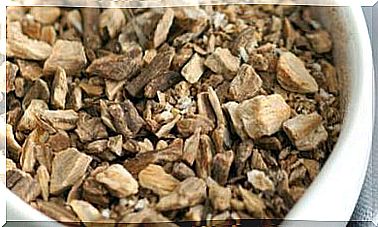Integrative Oncology Helps You Cope With Cancer
The combination of conventional medicine with disciplines such as nutrition, relaxation techniques and other therapies has been scientifically proven effective

Tackling cancer is a great personal challenge. In every sense. It is a time when lifestyles, beliefs are rethought, emotions are dived. .. More and more people decide to accompany themselves in this process with integrative medicine, an approach that seeks to promote health in a serious and rigorous way. combining the valuable scientific-technical contribution of conventional medicine and care through a holistic conception of the human being –which includes physical, emotional, mental and spiritual aspects–.
This model is based on the body-mind perspective, the knowledge and professionalism of the therapist, the role of the patient as manager of their own health and the work with natural and humanistic therapies that complement the conventional ones: surgery, chemotherapy, molecular therapeutic actions. and radiation therapy.
Integrative psychology: more resources at your fingertips
The practice of integrative oncology includes from conventional medicine to those less used in our society: bioenergetic therapies, phytopharmaceuticals, energy psychology and many more. All of them seek the internal potential of each person, the detoxification of a chronic situation (a poor diet and the accumulation of different toxins, drugs and chemotherapy), the care of the immunity and the natural resources of the organism to regain health, and the attention to the emotional and spiritual aspects of the disease.
In integrative oncology, conventional medicine and other therapies are used that seek the internal potential of each person
Leading oncologists promote quality research on these complementary modalities through the International Society of Oncology (SIO) and its specialized journal ( Journal of the Society for Integrative Oncology ). The SIO panel of experts made specific recommendations at the time based on the strength of the evidence and the risk-benefit ratio. In Spain, the Spanish Society of Medical Oncology in 2014 incorporated its own guide to integrative therapies in response to the need to respond to the frequent demand of patients who ask their oncologist about the diet they can do, the appropriate physical activity, the use of of natural supplements and other habits that can help them in their process. These contents allow professionals, patients and their families to have truthful and verified information.
Next, we are going to highlight several of the best contrasted measures and with scientific evidence associated with integrative oncology.
Anticancer diet
It seems sufficiently demonstrated and well documented that diet is responsible for between a third and a half of all human cancers, and up to 70% of those of some systems, such as the digestive one. This invites us all to take a more active role in caring for our health and to acquire the necessary information and means at the service of a comprehensive and healthy lifestyle.
- Increases the risk: a high consumption of products of animal origin, a low amount of fiber and the imbalance between omega 3 and omega 6 fatty acids.
- It is preventive: the intake of fruits and vegetables, as well as the inclusion in the daily diet of elements such as selenium, folic acid, vitamins B and D, carotenoids, probiotics and antioxidants.
- Once It Has Been Manifested: Studies show that a low-fat, high-fiber diet protects against recurrence and progression of cancer. Thus, the standard plate of the anti-cancer diet will contain a variety of fruits and vegetables, legumes with olive oil, garlic, herbs and spices, leaving dairy products, meat and eggs as optional and never the main ingredient of the dish. It is important to highlight the antiproliferative effect of tumor cells that crucifers (cabbage, broccoli, kale, watercress …) and garlic have.
- The healthiest thing is to eat little or no red meat and reduce the amount of processed foods, sugars and refined flours
The experts with a more authoritative opinion of the planet, such as Dean Ornish, of the University of San Francisco (USA), insist on the vital importance of increasing the quality and decreasing the quantity of nutrients, indicating that the healthiest It is eating little or no red meat and reducing the amount of processed foods, including refined sugars and flours.
Physical exercise
Together with a healthy diet, the role of exercise is fundamental. The calculations of the official organisms experts in the subject affirm that the incorporation of the alimentary recommendations and the physical activity are sufficient to reduce the incidence of cancer in more than 40% in the whole world. Moderate exercise for three to five hours a week cut the chances of dying from breast and colon cancer by nearly half, according to researchers at Harvard Medical School. The practice of exercise …
- It lowers insulin levels, which is one of the most powerful ways to lower your risk of cancer.
- It triggers apoptosis (programmed cell death), which causes cancer cells to die. It has been shown in skin tumors and intestinal polyps.
- It lowers the level of estrogens, something especially beneficial in breast cancer in women, while in men circulating testosterone levels decrease.
Regular exercise and muscle strength help reduce cancer mortality in 30% -40% of cases
There is consensus among professionals in recommending that cancer patients exercise during and after treatments. Regular exercise and muscle strength help reduce cancer mortality in 30% -40% of cases. The traditional prescription is 20 minutes of exercise at least three days a week. After the radio and / or chemotherapy periods, at least 30 minutes of moderate exercise five days a week is recommended.
Hours of sleep
People with problems sleeping well (having trouble falling asleep, waking up many times or very early in the morning) often have health problems, including an increased risk of cancer and a poorer response to their treatments. This risk has also been found in people who travel a lot or who work rotating shifts or at night.
In the relationship between sleep and cancer, several factors are involved that are related to the care and strengthening of the immune system: the relaxation response, deprivation or exposure to light, the function of the pineal gland and the thymus and melatonin levels. Rest, in appropriate quantity and quality, has an important role as an immunomodulator and oncological preventive.
Rest, in appropriate quantity and quality, has an important role as an immunomodulator and oncological preventive
The pineal gland is essential in the induction of sleep: it is a natural stimulator of the thymic gland –key in the functioning of the immune system and its antitumor role– and it secretes melotonin. This hormone:
- It has antioxidant, anti-inflammatory, anti-aging, and anti-cancer properties.
- Reduces symptoms of depression in women with breast cancer.
- It has beneficial effects on a cognitive level, in addition to improving the quality of life.
It is found naturally in foods of plant origin: spices, tea, cherries, corn, red wine, tomato, potato, onion, walnuts, rice, strawberries, oranges, peppers, chickpeas, dried beans, sunflowers and almonds. Still, supplements are easy to have today.
Manage stress
Chronic stress is a major immunosuppressive factor, with all the consequences it entails, including its relationship with cancer. Elements maintained in times of stress in family, work or personal life, psychosocial factors and others have been indicated as risk factors, particularly in the personality known as type C, passive people and with difficulty expressing anger. An increase in the incidence of cancer has also been shown in people with grief or after a divorce, and a worse prognosis in patients with depression.
Learning stress management techniques –breathing, relaxation, visualization, mindfulness …–, social support and positive attitude change are valuable tools, not only from the point of view of quality of life, but also also to boost the immune system and influence the course and response to treatment.









